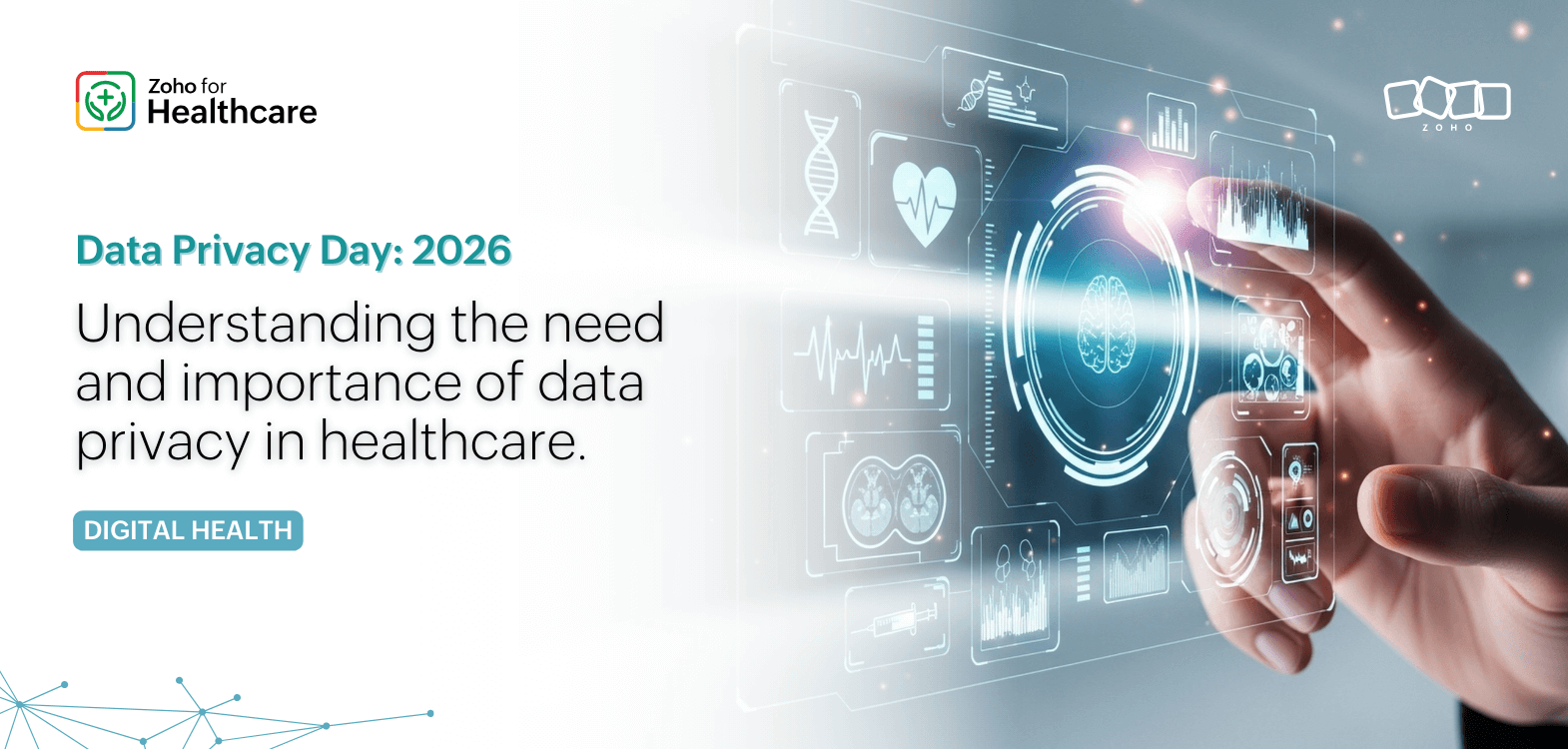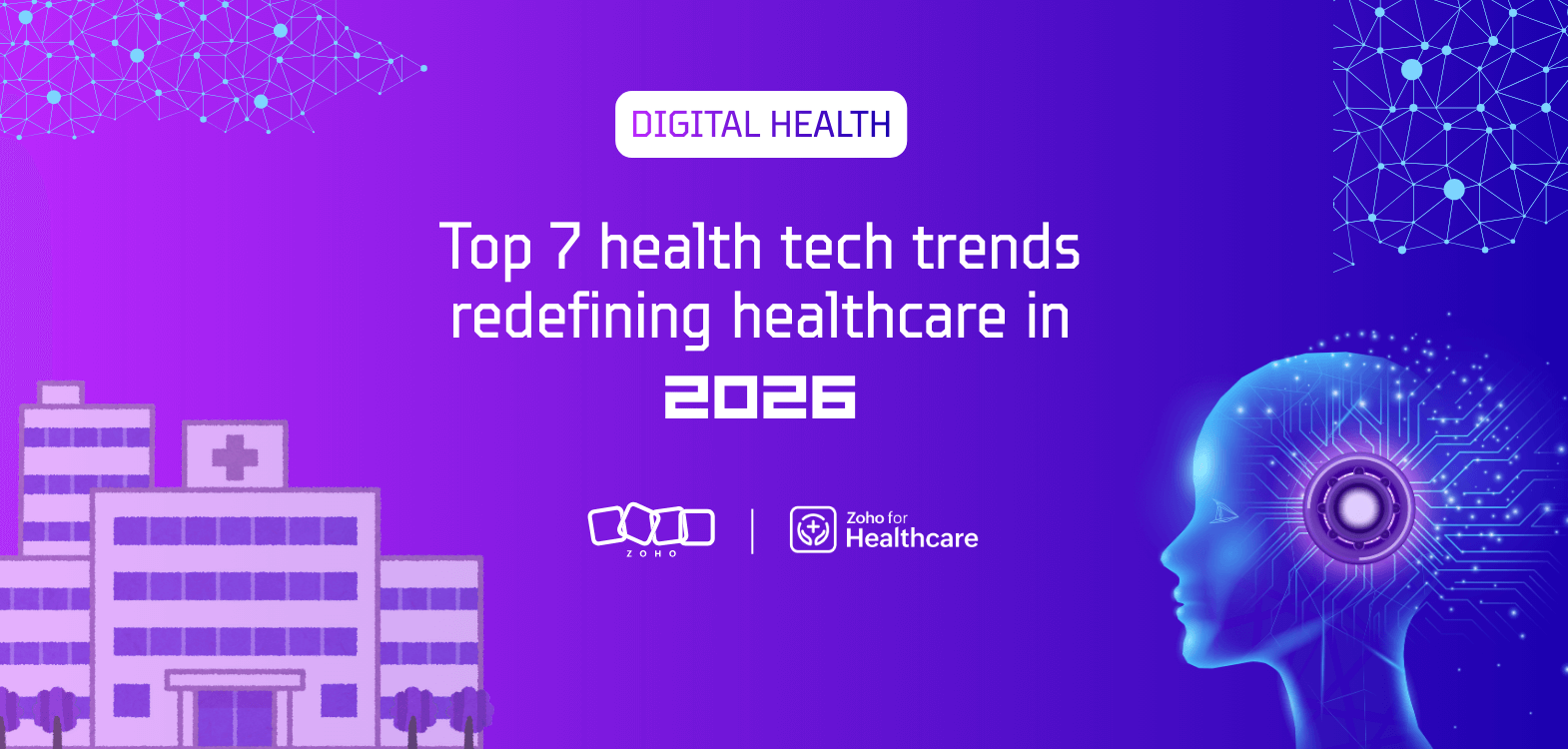- HOME
- Digital Health
- Practice management software: The key to seamless healthcare administration
Practice management software: The key to seamless healthcare administration
- Last Updated : February 28, 2025
- 674 Views
- 6 Min Read

While the adoption of technology has been advancing rapidly in most industries, its influence on healthcare has progressed at a relatively slower pace. The healthcare sector continues to rely heavily on legacy technologies. Many of the solutions currently in use are outdated but remain part of the usual day-to-day processes out of habit or a necessity.
Doctors universally agree on one thing: They want to provide the best possible care for their patients. As specialists in finding the root cause of the patient's problem, doctors would prefer not to be burdened by the administrative responsibilities that often accompanies their work.
Incorporating technology into healthcare can make a major difference both to the care provider and the patients. Adoption of technology in healthcare is growing, with the global digital health market expected to almost double in market size from USD$347 billion in 2025 to USD$1500 billion in 2030, according to a recent study.
What is practice management?
Practice management refers to all of the administrative tasks required to run a clinic or any medical practice. This includes storing patient records, managing patient appointments, tracking accounting operations, and overseeing the workforce. Before the advent of technology, all of these tasks were performed manually. Now, there are modern software solutions available to bridge this gap.
What is a practice management software?
A practice management software solution is designed to streamline the workflow of medical practices of any size. It helps healthcare providers manage their operations and optimize the workflow of their clinic. In general, practice management software offers features ranging from basic appointment booking to patient record management, handling invoices, and much more.
This versatile solution can cater to the needs of various types of practitioners, including solo practitioners, small clinics, and large healthcare organizations.
Practice management software comes in two forms—on-premise and cloud-based solutions. On-premise is installed locally and gives direct access to information. This, however, requires significant hardware layout and maintenance efforts.
Cloud-based solutions, in contrast, are a more modern and advanced solution and are hosted online. It offers greater levels of flexibility and accessibility while doing away with the need for expensive infrastructure.
Why is there a need for a PMS solution?
Clinics and hospitals are often overwhelmed by the administrative work that goes along with running a medical practice. Managing patient details, invoices, appointments, scheduling, and more can be a challenge for anyone. A solution that streamlines all of these processes and makes clinical operations and data management simple has become a necessity. The growing need for such software is evidenced by a market analysis predicting the global practice management software market to grow from USD$12.73 billion to USD$23.70 billion by 2032.
Here are some ways a practice management software solution can enhance care delivery and improve the efficiency of clinical operations.
Improved patient care
This is perhaps the most important reason: Healthcare providers strive to deliver the best possible care for their patients. Using practice management software helps streamline many administrative tasks, freeing up time for healthcare providers to focus more on patient care.
With tasks like appointment scheduling and paperwork management taking significantly less time, medical practitioners can dedicate more attention to their patients. This not only improves patient satisfaction but also enhances the provider's experience. Enhancing efficiency with the right practice management software solution can help your practice reach new heights of operational excellence.
Comprehensive documentation of patient data
Documenting clinical data is one of the most critical aspects of running any medical practice. Keeping patient information organized in one place can help improve the efficiency and accuracy of care administered and help improve patient outcomes.
Easily accessible patient records with all clinical information, billing details, and other relevant data enables providers to easily retrieve critical patient data quickly and efficiently, all from one place.
Better workflow and organization
The key advantage of these solutions lies in their ability to streamline workflows in any healthcare center and optimize them to maximize productivity. By minimizing the time spent on creating and managing administrative tasks, providers can allot more time and attention towards delivering better patient care.
With back office tasks handled more efficiently using this software, administrative bottlenecks often associated with manual processes are significantly reduced. This helps create a smoother and productive environment in the clinic.
Improved communication
Doctors running a health center often find it challenging to maintain clear communication with their patients and other hospital departments, be it administration, nursing staff, or other fellow doctors. Discussions that happen through traditional means of communication can lead to gaps and inefficiencies, hindering smooth operations.
With practice management software, inter-departmental communication can be significantly improved by providing better and more efficient communication channels for interacting with both doctors and patients.
Enhanced patient satisfaction
Implementing practice management software ensures that every patient interaction with the clinic or hospital is seamless and efficient. From booking appointments to receiving timely reminders for follow-ups, everything is streamlined and simplified for the patient. This helps lower administrative challenges while improving the overall patient experience.
Key features in a practice management software solution
While every practice has unique requirements, there are certain day-to-day needs that are commonly needed for anytype of healthcare facility. The right practice management software equipped with these key features helps cut down the time spent on administrative tasks.
Appointment scheduling
One of the most fundamental features of any practice management software is its ability to schedule patient appointments. An appointment scheduling module that tracks doctor availability and allocates slots for patients can help manage clinical operations efficiently. This helps eliminate problems such as double bookings and reduces patient waiting time at the clinics, giving them a much smoother experience.
Electronic medical records
Storing patient records is the core component of any PMS solution. Centralizing patient medical information in one easily accessible place—medical histories, clinical examinations, treatment plans, prescriptions, and other relevant information empowers practitioners to make well-informed decisions.
Invoice and billing
Generating invoices is an important aspect of any healthcare organization. Accurate billing and expense tracking ensures financial transparency and efficiency. A robust invoicing system allows providers to create accurate bills, easily share them with patients, and maintain organized records for internal use. This not only helps with the financial management of the clinic but also helps the organization keep track of the revenue cycle and day-to-day expenses.
Reporting and analytics
A good practice management software provides comprehensive and customizable reporting and analytics tools to run your clinical operations. It provides insights into various aspects such as revenue, patient visit numbers, and the volume of care provided by doctors, enabling providers to optimize all of these to improve operational efficiency. Having access to these insights empowers healthcare professionals to make data-driven decisions and improve the overall management of the clinic.
Customization and scalability
Practice management software must include an element of customization to the diverse needs of healthcare organizations, which can range from small clinics to large hospitals. Customizations allow care providers to implement a system tailored specifically for their practice. For example, specialty-specific customizations can simplify the process of recording and organizing patient data. Having a scalable solution ensures the software solution grows alongside the clinic or hospital. As the practice expands, the software should be able to adapt and accommodate the increased demands and be a future-ready system.
Wrapping up
These are some of the key features to look for when choosing a practice management software for your clinic or hospital. Zoho for Healthcare offers a comprehensive practice management solution equipped with all of these features and many more, all designed to help manage any medical practice efficiently. Get in touch with us, and we will ensure that you have the perfect PMS solution tailored to your practice's needs.
Incorporating practice management software can significantly streamline the administrative operations of your healthcare facility. By enhancing patient engagement and optimizing overall clinical efficiency, technology empowers healthcare professionals to focus on what truly matters—delivering exceptional, high-quality patient care. With practice management software handling the administrative tasks, doctors can dedicate all of their time and expertise to delivering exceptional care to their patients and ensuring better patient outcomes.


